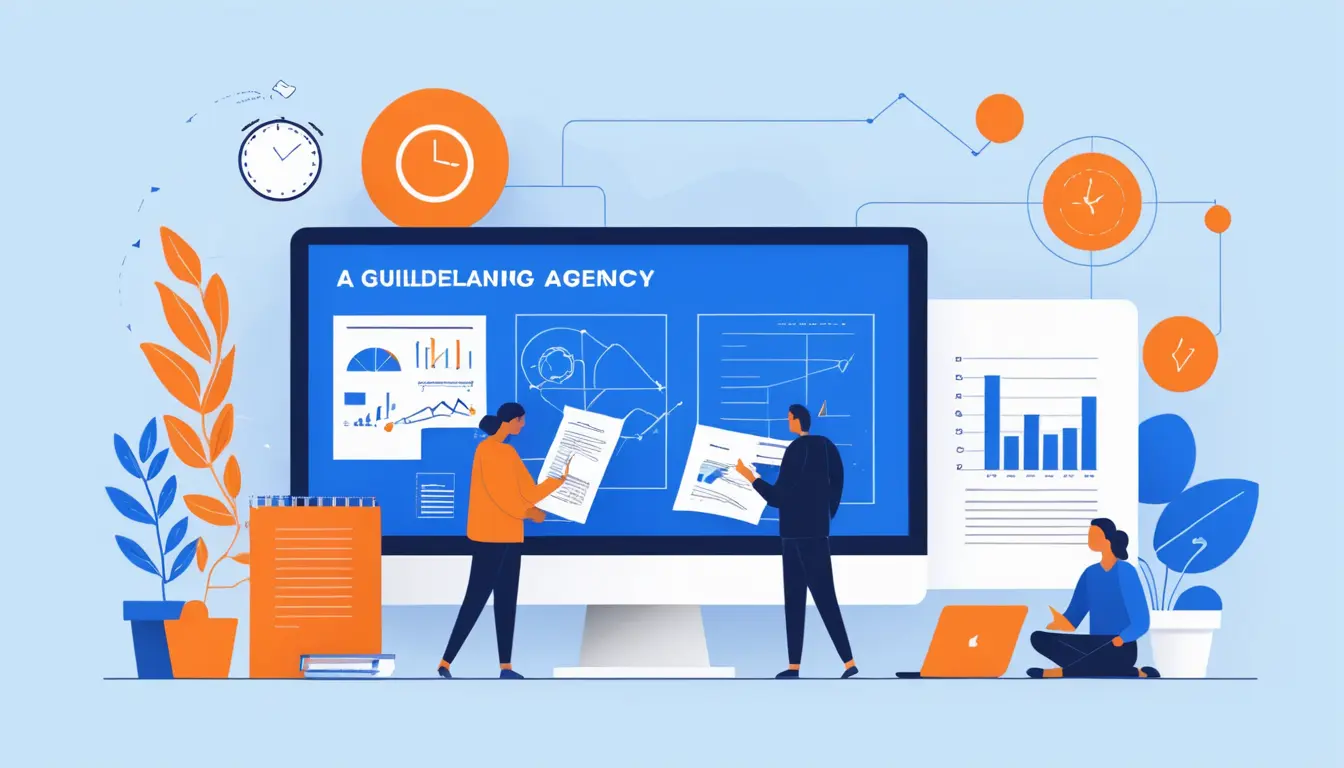Every freelancer dreams of reaching the ultimate level of success. However, this journey is far from easy. Achieving success in freelancing requires going through several stages, and only those who persevere and work hard are ultimately rewarded.
Many people believe that freelancing becomes successful once you start providing services to clients outside the marketplace after initially working there for a while. This is a misconception. While freelancing in this way can generate good revenue, it doesn’t ensure complete stability, and therefore, cannot be considered truly successful.
So, how can you make your freelancing career truly successful?
By building a freelancing agency! An agency provides a freelancer’s career with 100% stability and success. In this series, I’ll provide you with detailed guidelines on freelancing agencies, which will surely benefit everyone.
What is a Freelancing Agency?
Let’s start with some basic information about freelancing agencies. A freelancing agency is a business run by multiple freelancers together. Typically, a freelancing agency consists of a team of experts in different fields. This team manages the agency’s website, social media, marketing, customer service, and, most importantly, delivers services based on the client’s needs. Essentially, the foundation of every freelancing agency is its team.
There are two patterns of freelancing agencies:
- Single Owner Model:
In this model, a freelancer starts by opening an agency and later hires other expert freelancers on a part-time, full-time, or project basis. While the agency operates through teamwork, there is one single owner who handles the overall management, marketing, and client relationships. The hired freelancers primarily provide services to clients based on their demands, while a few others might be involved in agency management or marketing. - Partnership Model:
In this model, several expert freelancers build a team and run the agency together. This type of agency does not have a single owner but operates entirely on a partnership basis. Freelancers often team up with individuals they trust and whose career goals align with theirs. Such agencies are structured so that there are experts available for all types of work.
Why Should You Build a Freelancing Agency?
When freelancing solo, you handle everything yourself—from client hunting to service delivery and marketing. While this might work well in the beginning, it’s not a fully stable option in the long term.
Here’s why:
- Solo freelancing limits the number of clients you can serve simultaneously, as handling too many clients often leads to a decline in service quality.
- Renowned companies usually prefer agencies over solo freelancers, as agencies are more likely to deliver timely and high-quality services.
Building an agency allows you to take your career to an advanced level.
How?
Since agencies operate with a team of experienced freelancers, they can handle multiple clients simultaneously, thus increasing revenue.
- Timely delivery ensures client satisfaction, leading to more repeat clients, which is invaluable for freelancing success.
- Repeat clients not only stay loyal to your agency but also recommend your services to others, bringing in more business.
- An agency’s ability to attract big companies with large-scale projects further boosts revenue and builds a strong portfolio, creating opportunities for long-term collaborations.
Who is a Freelancing Agency Suitable For?
It’s important to note that freelancing agencies are not suitable for beginners in the freelancing sector.
Why?
Running a freelancing agency requires expert freelancers who can handle a heavy workload, collaborate with team members, and deliver top-notch services to clients. Additionally, marketing efforts for agency growth demand extra effort. All these tasks require significant experience and skills, which beginners often lack.
So, who should build a freelancing agency?
If you have at least 3–4 years of experience in freelancing, you can consider building an agency. By this time, you should have solid work experience, strong client relationship skills, negotiation capabilities, and marketing knowledge—all essential for successfully running an agency.
Moreover, if these two signs match your situation, it’s time to transition from freelancing to an agency:
- If your workload has increased significantly, and you’re unable to provide high-quality services to multiple clients simultaneously, developing an agency will allow you to distribute tasks among your team members. This ensures that you can manage multiple clients efficiently.
- If your current clients are requesting additional services that you cannot provide alone, an agency can help meet their demands with a specialized team.
Building an agency not only provides stability but also opens doors to greater opportunities, helping you achieve long-term success.
Stay tuned for the next part of this series, where we’ll dive deeper into the step-by-step process of building a freelancing agency.











